May 13 stands as one of history’s most eventful days, witnessing the rise and fall of empires, groundbreaking discoveries, and moments that shaped our modern world across centuries of human achievement.
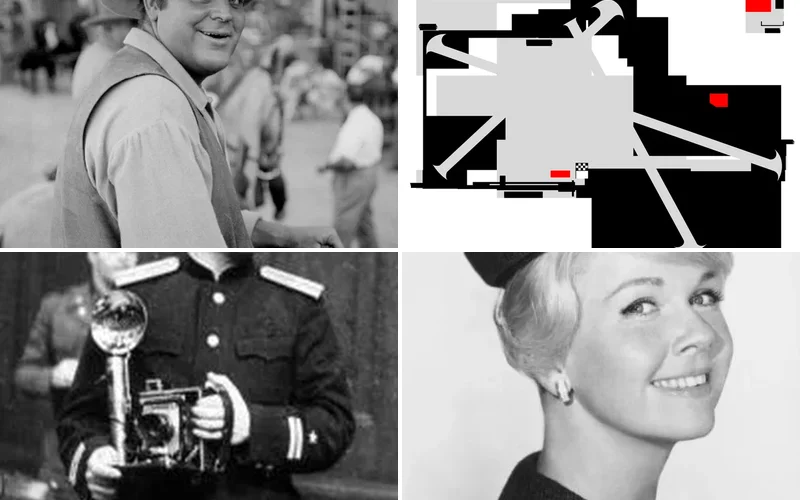
Politics and Government Events on May 13
1940 – Germany Conquers France and Churchill’s Blood Speech
Germany’s conquest of France began as Wehrmacht forces crossed the Meuse River in a decisive offensive. Winston Churchill simultaneously delivered his immortal “blood, toil, tears, and sweat” speech to the House of Commons.
Churchill’s words rallied Britain during its darkest hour while German panzer divisions shattered French defensive lines. The dual events marked a pivotal moment when Nazi Germany reached its zenith and British resolve crystallized.
1958 – French Military Coup in Algeria
French military officers launched a dramatic coup in Algiers, demanding Charles de Gaulle lead a national unity government. The officers sought to preserve French colonial control over Algeria through political revolution.
The May Crisis brought France to the brink of civil war as military commanders defied civilian authority. De Gaulle’s eventual return to power fundamentally transformed French politics and Algeria’s path to independence.
1952 – India’s Rajya Sabha First Session
The Rajya Sabha, India’s upper house of Parliament, convened its inaugural session in New Delhi. This historic moment completed India’s bicameral legislative structure under the new constitution.
The upper house provided crucial representation for India’s states in federal governance. Distinguished members debated pressing national issues while establishing parliamentary traditions that continue today.
1967 – Zakir Husain Becomes India’s President

Dr. Zakir Husain assumed office as India’s third President, becoming the first Muslim to hold the nation’s highest office. His appointment demonstrated India’s commitment to secular governance and religious inclusivity.
Husain’s presidency symbolized national unity during a period of significant social and political change. His educational background and diplomatic experience strengthened India’s domestic and international standing.
1958 – Nixon Attacked in Venezuela
Vice President Richard Nixon’s motorcade came under violent attack from anti-American demonstrators in Caracas, Venezuela. The incident shocked the Eisenhower administration and highlighted growing Latin American resentment toward U.S. policies.
Protesters surrounded Nixon’s car with rocks and metal pipes, forcing security personnel to take evasive action. The attack demonstrated the volatile political climate throughout Latin America during the Cold War era.
Military and Naval History on May 13
1912 – Royal Flying Corps Established
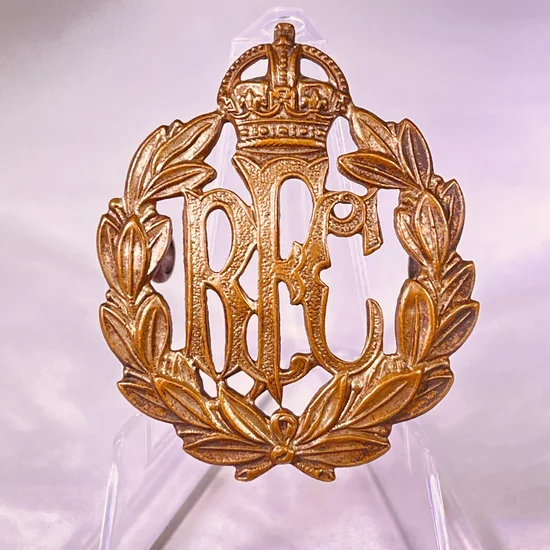
The Royal Flying Corps officially formed in Britain, creating the foundation for modern military aviation. This pioneering air service would evolve into the mighty Royal Air Force during World War I.
Military strategists recognized aviation’s revolutionary potential for reconnaissance and combat operations. The RFC’s establishment marked Britain’s commitment to dominating the emerging battlefield of aerial warfare.
1943 – Axis Forces Surrender in Tunisia
Operations Vulcan and Strike culminated in the complete surrender of remaining Axis troops in Tunisia. This decisive Allied victory eliminated German and Italian resistance across North Africa.
The surrender opened the Mediterranean to Allied shipping and set the stage for the Italian campaign. Over 250,000 Axis prisoners were captured, dealing a devastating blow to German military capabilities.
1945 – Reichstag Victory Photograph Published
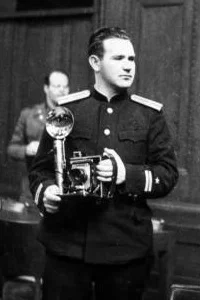
Yevgeny Khaldei’s iconic photograph “Raising a Flag over the Reichstag” appeared in Ogonyok magazine, immortalizing Soviet victory over Nazi Germany. The image became one of history’s most recognizable symbols of Allied triumph.
The photograph captured the moment Soviet soldiers planted their flag atop Hitler’s seat of power. This powerful visual narrative defined how the world would remember Germany’s defeat and Soviet sacrifice.
1948 – Kfar Etzion Massacre
The Kfar Etzion massacre occurred one day before Israel’s Declaration of Independence, highlighting the brutal violence preceding statehood. Arab forces overwhelmed Jewish defenders in this strategic settlement south of Jerusalem.
The massacre demonstrated the fierce resistance to Jewish independence across the Palestinian territory. This tragic event foreshadowed the intense military conflicts that would define the region’s future.
Science and Discovery Milestones on May 13
1998 – India’s Nuclear Weapons Tests

India conducted two additional nuclear weapon tests at Pokhran, following earlier detonations on May 11. These tests established India as a declared nuclear power and shifted global strategic calculations.
The United States and Japan immediately imposed economic sanctions on India for violating non-proliferation agreements. India’s nuclear demonstration sparked an arms race with Pakistan and redefined South Asian security dynamics.
1958 – Ben Carlin Completes World Circumnavigation
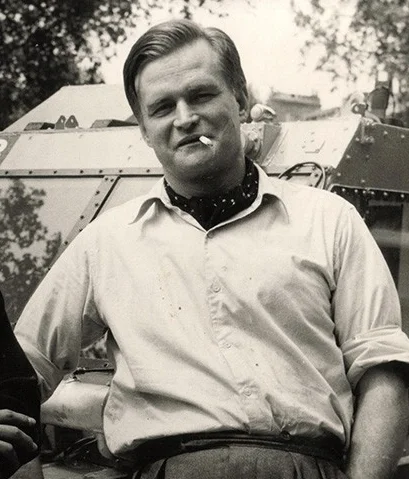
Ben Carlin became the first and only person to circumnavigate the globe in an amphibious vehicle, completing his ten-year journey. He traveled over 17,000 kilometers by sea and 62,000 kilometers by land.
Carlin’s extraordinary feat demonstrated human ingenuity and determination in conquering geographical barriers. His amphibious vehicle “Half-Safe” proved that innovative engineering could overcome seemingly impossible challenges.
1929 – Arthur Scherbius Dies
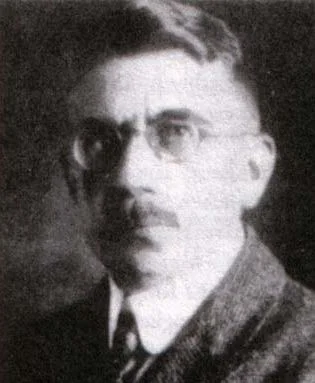
Arthur Scherbius, the German electrical engineer who invented the Enigma machine, died on this date. His cryptographic device would become central to World War II intelligence operations and codebreaking efforts.
Scherbius never witnessed how his invention would shape global warfare and intelligence gathering. The Enigma machine’s eventual decryption by Allied forces proved decisive in achieving victory over Nazi Germany.
1995 – Alison Hargreaves Conquers Everest
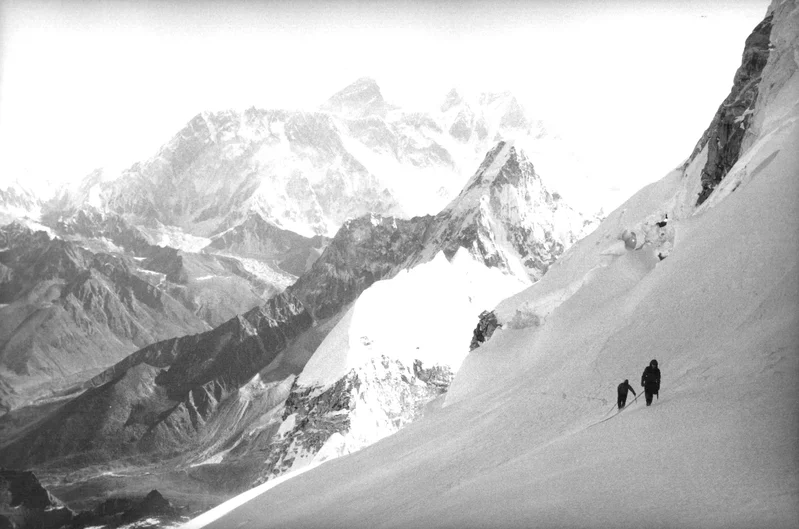
British mountaineer Alison Hargreaves became the first woman to ascend Mount Everest without supplemental oxygen or sherpa assistance. Her remarkable achievement redefined possibilities for high-altitude mountaineering.
The 33-year-old mother’s solo ascent demonstrated extraordinary physical and mental endurance under extreme conditions. Her success inspired countless women to pursue previously unthinkable adventures in extreme environments.
Cultural and Arts Events on May 13
1916 – Sholem Aleichem Dies

Sholem Aleichem, the beloved Ukrainian-American author and playwright, passed away, leaving behind a rich literary legacy. His stories immortalized Jewish life in Eastern Europe and inspired countless adaptations.
Aleichem’s characters, particularly Tevye the Dairyman, became cultural icons representing Jewish resilience and humor. His work later inspired the acclaimed musical “Fiddler on the Roof,” bringing his stories to global audiences.
1962 – Franz Kline Dies
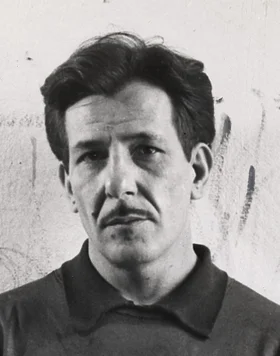
American abstract expressionist painter Franz Kline died, concluding a career that revolutionized modern art. His bold black and white paintings captured the energy and movement of urban industrial America.
Kline’s distinctive style influenced generations of artists exploring abstraction and gestural painting. His works remain centerpieces in major museums worldwide, representing American art’s coming of age.
1985 – Chet Baker Dies
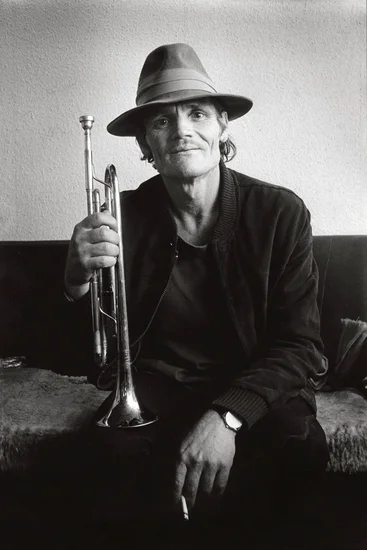
Jazz trumpeter and vocalist Chet Baker died tragically, ending a career marked by musical brilliance and personal struggle. His cool jazz style and romantic ballad interpretations defined West Coast jazz.
Baker’s haunting trumpet tone and intimate vocal delivery influenced countless musicians across multiple genres. His troubled life and mysterious death added to his legend as jazz’s most enigmatic figure.
1961 – Gary Cooper Dies
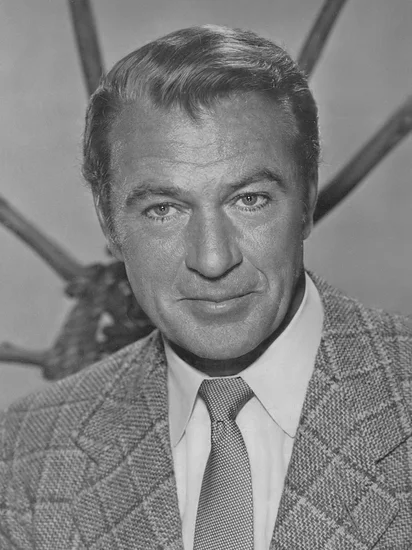
Hollywood legend Gary Cooper passed away, concluding a career that defined American masculinity on screen. His natural acting style and commanding presence made him one of cinema’s most beloved stars.
Cooper’s performances in “High Noon” and “Sergeant York” earned him Academy Awards and cemented his status as an American icon. His death marked the end of Hollywood’s golden age and classic Western heroism.
Religious and Social Events on May 13
1917 – First Fátima Apparition

Three Portuguese children reported the first apparition of Our Lady of Fátima in Fátima, Portugal. This religious event would become one of Catholicism’s most significant modern miracles.
The apparition marked the beginning of a series of supernatural encounters that drew international attention. The Fátima revelations profoundly influenced Catholic devotion and papal teachings throughout the twentieth century.
1981 – Pope John Paul II Assassination Attempt

Mehmet Ali Ağca attempted to assassinate Pope John Paul II in St. Peter’s Square, Rome. The Pope survived emergency surgery at Agostino Gemelli University Polyclinic after being rushed from the scene.
The shocking attack occurred before thousands of pilgrims during a general audience. The Pope’s recovery and subsequent forgiveness of his attacker demonstrated remarkable spiritual strength and Christian mercy.
1989 – Tiananmen Square Student Protests

Large groups of Chinese students occupied Tiananmen Square in Beijing, beginning a hunger strike for democratic reforms. Their peaceful protest would grow into one of the most significant pro-democracy movements in modern history.
The students’ courage inspired millions worldwide while challenging authoritarian rule in China. Their demonstrations ultimately led to tragic confrontations that became symbols of the struggle for human rights.
1985 – MOVE Headquarters Bombing

Philadelphia police bombed the MOVE headquarters, killing eleven people including five children and destroying 250 homes. This controversial law enforcement action sparked nationwide outrage and legal investigations.
The bombing represented a catastrophic failure of police tactics and community relations. The incident highlighted racial tensions and excessive force issues that continue to challenge American cities.
Business and Economic Events on May 13
2000 – Enschede Fireworks Factory Explosion
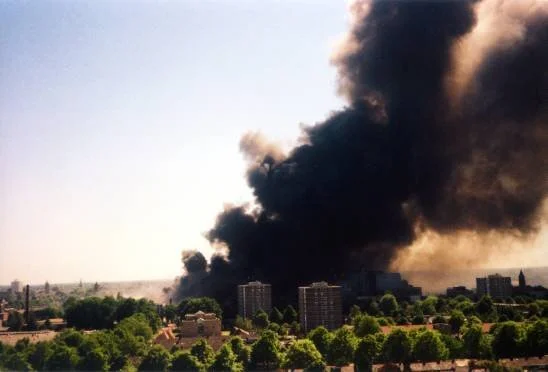
A fireworks storage depot exploded in a residential neighborhood in Enschede, Netherlands, killing 23 people and injuring 950 others. The industrial disaster devastated the surrounding community and raised safety regulation questions.
The massive explosion destroyed hundreds of homes and businesses in the immediate vicinity. Dutch authorities implemented stricter industrial safety standards following investigations into the preventable tragedy.
1951 – Peru’s National Stadium Opens
Peru commemorated the 400th anniversary of the National University of San Marcos by opening the country’s first large-capacity stadium. This infrastructure project symbolized Peru’s modernization efforts and growing sports culture.
The stadium’s construction demonstrated Peru’s commitment to athletic development and international competition. The facility would host countless sporting events and become a source of national pride.
1985 – Eddie Barclay Dies
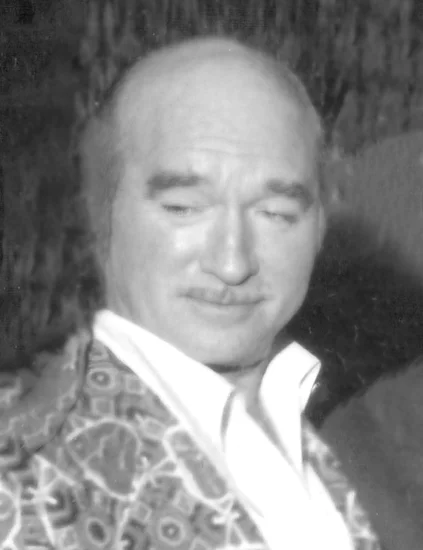
French record producer Eddie Barclay, founder of Barclay Records, died after building one of Europe’s most successful music companies. His label discovered and promoted numerous international artists across multiple genres.
Barclay’s innovative marketing strategies and artist development programs influenced the global music industry. His death marked the end of an era in French entertainment and European record production.
Transportation and Infrastructure on May 13
1950 – First Formula One World Championship Race

The inaugural Formula One World Championship race took place at Silverstone Circuit, with Giuseppe Farina claiming victory. This historic event established the world’s premier motorsport competition.
Farina’s triumph launched his successful championship campaign and set the standard for future racing excellence. The race marked the beginning of Formula One’s evolution into a global sporting phenomenon.
1980 – Kalamazoo Tornado Disaster
An F3 tornado devastated Kalamazoo County, Michigan, prompting President Jimmy Carter to declare it a federal disaster area. The severe weather event highlighted the importance of emergency preparedness and response systems.
The tornado’s destruction required extensive federal assistance for recovery and rebuilding efforts. Local communities demonstrated remarkable resilience while implementing improved tornado warning systems.
1949 – Aeroflot Flight 17 Crash

Aeroflot Flight 17 crashed on approach to Severny Airport in Novosibirsk, killing all 25 people aboard. This aviation disaster highlighted the dangers of early commercial aviation in challenging weather conditions.
The crash prompted investigations into Soviet aviation safety procedures and pilot training programs. Improved navigation technology and safety protocols emerged from lessons learned in this tragic accident.
Sports and Recreation on May 13
1909 – First Giro d’Italia Begins
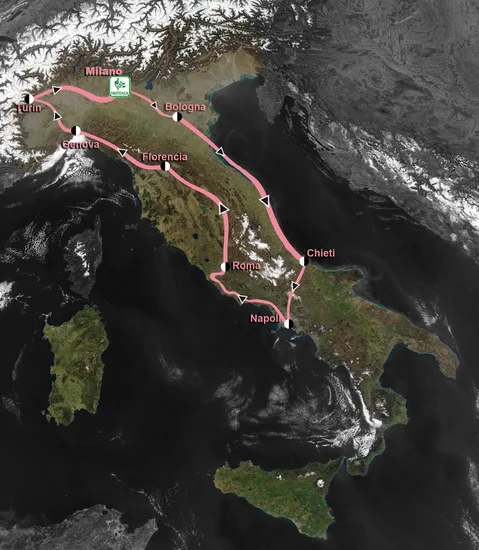
The inaugural Giro d’Italia, Italy’s legendary long-distance bicycle race, began in Milan with Luigi Ganna eventually claiming victory. This sporting event became one of cycling’s most prestigious competitions.
The race established Italy’s prominence in international cycling and created a beloved national sporting tradition. The Giro’s challenging mountain stages and passionate spectators made it cycling’s most emotionally charged grand tour.
1990 – Dinamo-Red Star Stadium Riot
A violent riot erupted at Maksimir Stadium in Zagreb between Dinamo Zagreb and Red Star Belgrade supporters. The confrontation between Bad Blue Boys and Delije fans reflected escalating ethnic tensions in Yugoslavia.
The stadium violence foreshadowed the brutal conflicts that would tear Yugoslavia apart. This sporting event became a symbol of how ethnic nationalism could transform peaceful competition into deadly confrontation.
1972 – Dan Blocker Dies
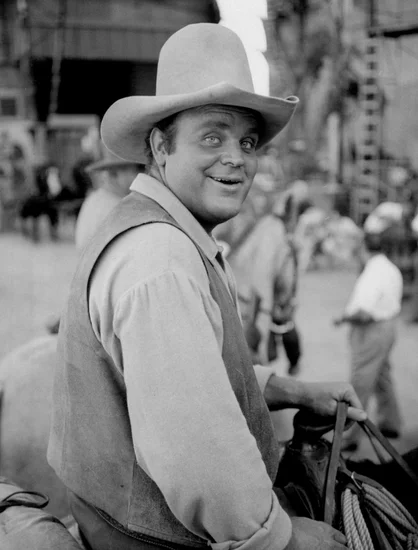
American actor Dan Blocker, beloved for his role as Hoss Cartwright on “Bonanza,” died unexpectedly at age 43. His death shocked television audiences who had grown to love his gentle giant character.
Blocker’s portrayal of the kindhearted Hoss made him one of television’s most popular western stars. His sudden death contributed to the eventual end of “Bonanza’s” remarkable fourteen-year run.
Notable Births on May 13
1950 – Stevie Wonder Born

Stevie Wonder was born in Saginaw, Michigan, destined to become one of America’s greatest musical innovators. His childhood blindness never hindered his extraordinary musical talents and creative vision.
Wonder’s mastery of multiple instruments and groundbreaking use of synthesizers revolutionized popular music. His songs addressing social issues helped define the sound and conscience of American soul music.
1964 – Stephen Colbert Born

Stephen Colbert entered the world in Washington, D.C., beginning a journey toward becoming one of America’s most influential comedians and television hosts. His satirical genius would reshape political commentary.
Colbert’s character-based comedy on “The Colbert Report” brilliantly parodied conservative punditry. His transition to hosting “The Late Show” demonstrated his versatility and enduring appeal to diverse audiences.
1986 – Robert Pattinson Born

Robert Pattinson was born in London, England, eventually becoming one of Hollywood’s most recognizable actors. His breakthrough role in the “Twilight” series launched him to international stardom.
Pattinson’s subsequent career choices in independent films demonstrated his commitment to serious acting. His performances in critically acclaimed movies proved his range beyond teenage vampire romance.
1914 – Joe Louis Born
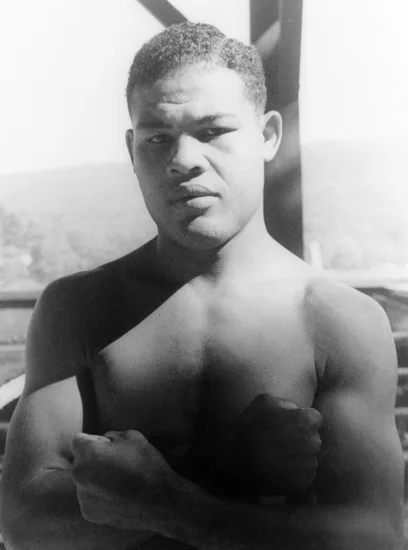
Joe Louis was born in Alabama, growing up to become the “Brown Bomber” and one of boxing’s greatest heavyweight champions. His athletic prowess and dignified demeanor broke racial barriers in sports.
Louis held the heavyweight title for twelve years, defending it successfully twenty-five times. His victories over German Max Schmeling became powerful symbols of American strength during World War II.
1950 – Bobby Valentine Born
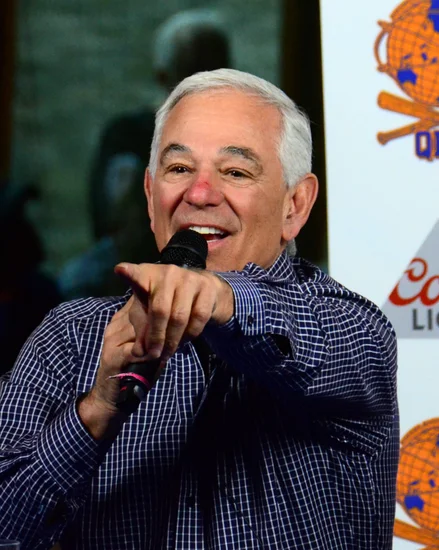
Bobby Valentine was born in Stamford, Connecticut, beginning a career that would span playing and managing in professional baseball. His innovative strategies and colorful personality made him a beloved figure.
Valentine’s managerial career included successful stints with the New York Mets and international teams. His dedication to baseball development programs influenced players across multiple countries and cultures.
Notable Deaths on May 13
2019 – Doris Day Dies
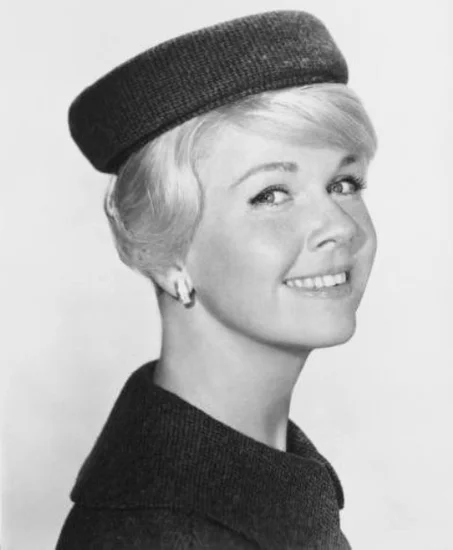
Doris Day, the beloved American singer and actress, passed away at age 97 after a career spanning decades of entertainment. Her wholesome image and beautiful voice made her one of Hollywood’s biggest stars.
Day’s films like “Pillow Talk” and songs such as “Que Sera, Sera” became cultural touchstones. Her later advocacy for animal rights demonstrated her compassion and commitment to humanitarian causes.
1930 – Fridtjof Nansen Dies
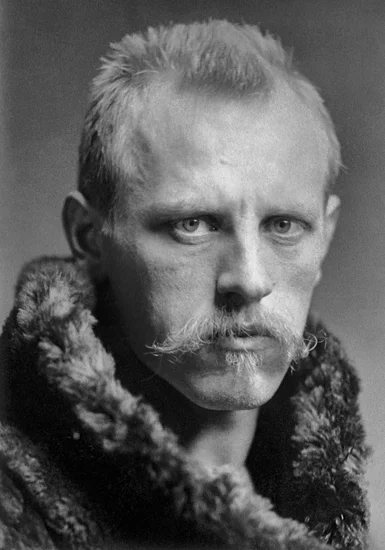
Norwegian scientist, explorer, and Nobel Prize laureate Fridtjof Nansen died after a remarkable career serving humanity. His Arctic explorations and humanitarian work established him as one of history’s most admirable figures.
Nansen’s leadership in refugee assistance programs saved countless lives following World War I. His scientific achievements and diplomatic service exemplified how individual excellence could benefit all mankind.
1975 – Bob Wills Dies
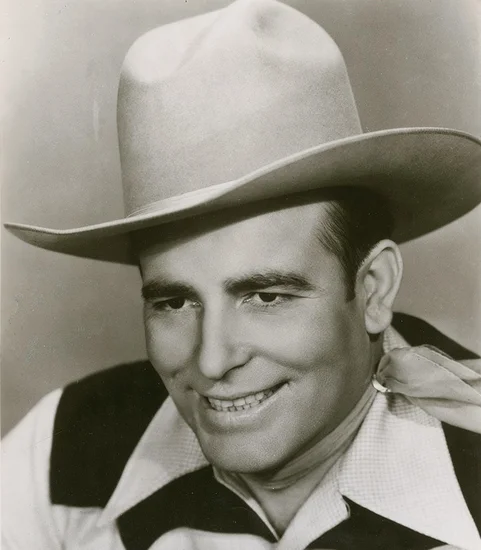
Bob Wills, the legendary American singer-songwriter and “King of Western Swing,” died after revolutionizing country music. His innovative fusion of jazz, blues, and country created an entirely new musical genre.
Wills’ Texas Playboys band influenced generations of musicians with their energetic performances and creative arrangements. His legacy lives on in countless artists who continue exploring the boundaries between musical styles.
2024 – Alice Munro Dies
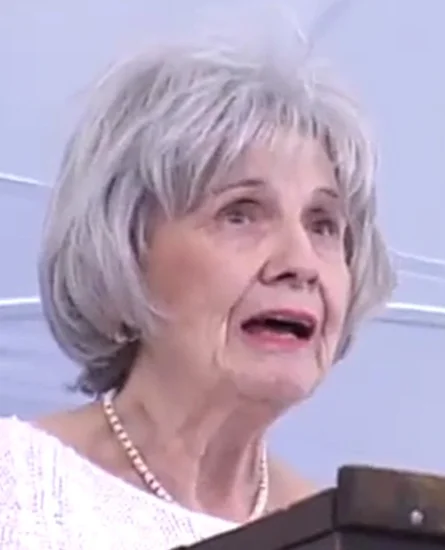
Alice Munro, the acclaimed Canadian short story writer and Nobel Prize laureate, passed away at age 92. Her masterful storytelling captured the complexities of ordinary life with extraordinary literary skill.
Munro’s stories explored themes of love, loss, and human relationships with remarkable psychological insight. Her death marked the end of one of literature’s most celebrated careers in short fiction.
1992 – Donald “Duck” Dunn Dies

Donald “Duck” Dunn, the legendary American bass player and producer, died after a career defining the sound of soul music. His work with Booker T. & the M.G.’s and Stax Records created timeless recordings.
Dunn’s bass lines anchored countless classic songs by Otis Redding, Sam & Dave, and other soul legends. His musical partnership with drummer Al Jackson Jr. formed one of rhythm and blues’ most influential rhythm sections.
Holidays and Observances on May 13
Our Lady of Fátima

Catholics worldwide observe the feast day of Our Lady of Fátima, commemorating the apparitions reported by three Portuguese children in 1917. This religious celebration draws millions of pilgrims to the Fátima shrine annually.
The observance includes special masses, processions, and prayers for world peace. Devotees believe the Fátima message continues to offer hope and spiritual guidance during times of global uncertainty.
Rotuma Day
The Fijian island of Rotuma celebrates its unique cultural heritage and history on this special day. Local communities gather to honor traditional customs, music, and dance that define Rotuman identity.
Rotuma Day festivities include cultural performances, traditional food preparation, and storytelling sessions. The celebration strengthens community bonds while preserving indigenous traditions for future generations.
Abbotsbury Garland Day
The village of Abbotsbury in Dorset, England, celebrates its annual Garland Day with colorful flower displays and traditional ceremonies. This centuries-old custom honors the arrival of spring and community spirit.
Local children create beautiful garlands from seasonal flowers while adults prepare traditional foods and entertainment. The celebration connects modern residents with their ancestors’ agricultural traditions and seasonal rhythms.
